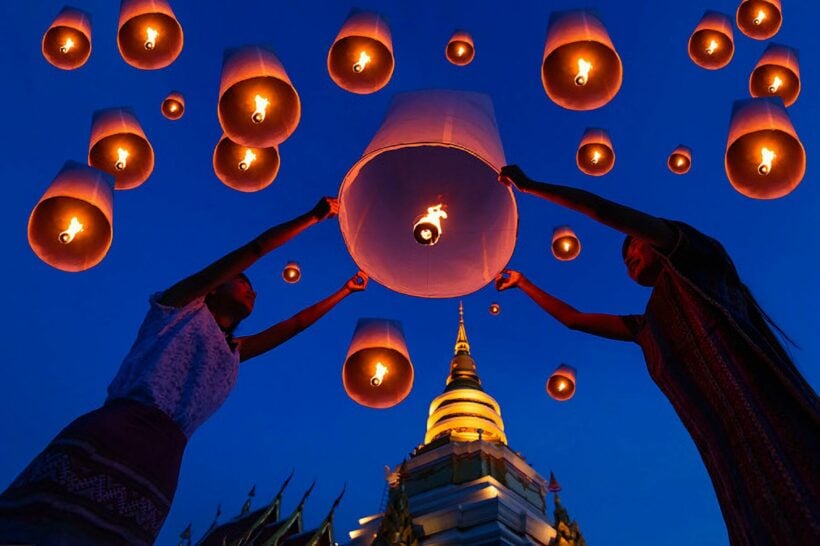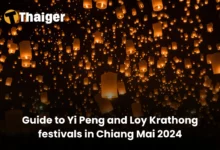Thailand’s most magical festival: Yi Peng
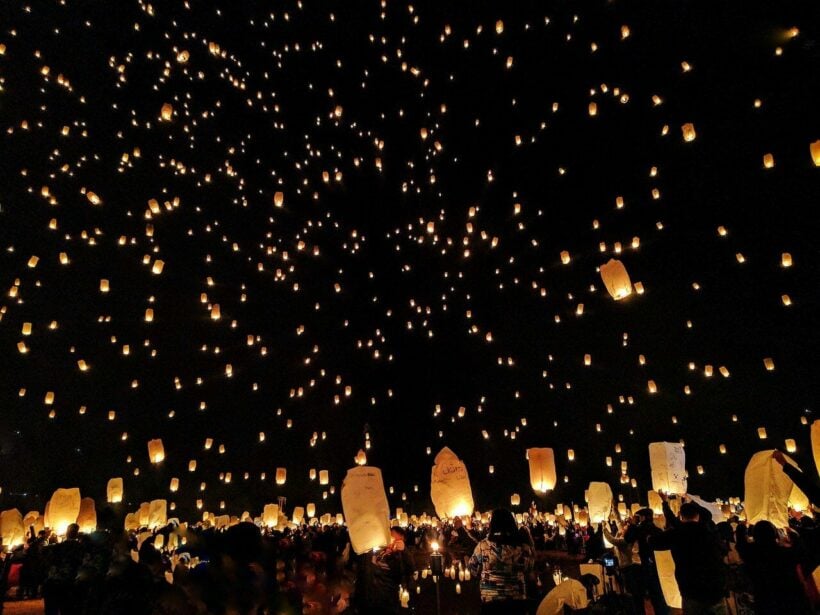
Northern Thailand’s lantern festival, Yi Peng, is perhaps the most magical festival in the world. Not only is this festival enchanting, but it’s loaded with religious and cultural significance. Thus, it’s a great way for travelers to learn more about Thailand’s rich culture and traditions.
If you’ve been dreaming about witnessing this mesmerising event with your own eyes, here is everything you need to know about the festival.
What is Yi Peng?
Yi Peng (sometimes written as Yee Peng) is a traditional Lanna festival that takes place in Northern Thailand. During the festival, participants launch paper lanterns called khom loi into the sky. Hence, it’s sometimes called the Lantern Festival or the Festival of Light. The act of releasing the lantern symbolises letting go of bad luck and misfortunes from the past year and wishing for good fortunes in the coming year. Buddhists believe that if you make a wish while releasing the lantern, it will come true.
The lanterns are released at approximately the same time in the evening. The view of thousands of lanterns ascending into the night sky, with various levels of brightness and speeds, is truly mesmerising. Because of this, the Yi Peng festival is often considered the most magical festival in Thailand.
Although the highlight of the Yi Peng festival is the lanterns, there are other activities that happen as part of the celebration. You can watch the official Yi Peng Parade, traditional Thai dance shows, live music, handicraft sessions, fireworks, and firecrackers. Additionally, you can also find numerous food vendors at the festival. Northern Thailand truly comes to life during Yi Peng. The towns are decorated with colourful hanging lanterns, and the entrances of temples are filled with flowers. In addition, many people decorate their houses with lit candles as a way to make merit.
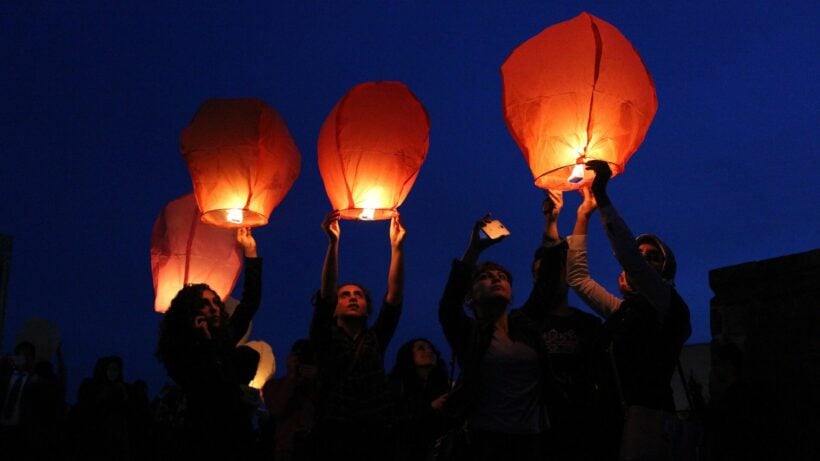
When is Yi Peng celebrated?
Yi Peng is celebrated on the full moon of the 12th month of the Thai lunar calendar, which usually falls in November. In 2021, the festival will take place on Friday, November 19. It coincides with Loy Krathong Festival, and the two festivals are often fused together. The main event of both festivals happens after dark.
Where is the best place to observe Yi Peng?
Although most towns and cities across Northern Thailand celebrate Yi Peng, Chiang Mai is the best place to experience this beautiful festival. The whole city is full of festive celebrations, from colourful lanterns and candles lining the streets to parades and music.
If you want to join in a mass lantern release and get a spectacular photo-op, Mae Jo University is the best place to go. The mass release usually occurs at 6.30pm, but you should arrive well in advance if you want to get a great spot. Besides the lantern release, you can generally enjoy cultural performances as well.
For those who want to truly immerse themselves in the festival and enjoy it like the locals, the best places to go are the Three Kings Monument, Nawarat Bridge on the Ping River, and Thapae Gate. The majority of the religious activities usually occur in the Three Kings Monument. These include a candle-lighting ceremony and a Buddhist worship ritual. For festival parades, food vendors, and fireworks, Thapae Gate is the best place to be.
Since Yi Peng is often combined with Loy Krathong in Northern Thailand, Nawarat Bridge on the Ping River is a great place to go if you want to watch a magical sight of hundreds of lanterns floating in the sky and lotus-shaped baskets on the water.
If you don’t want to participate in the festival and would rather watch the lanterns drifting into the night sky from afar, head to one of Chiang Mai’s rooftop bars.
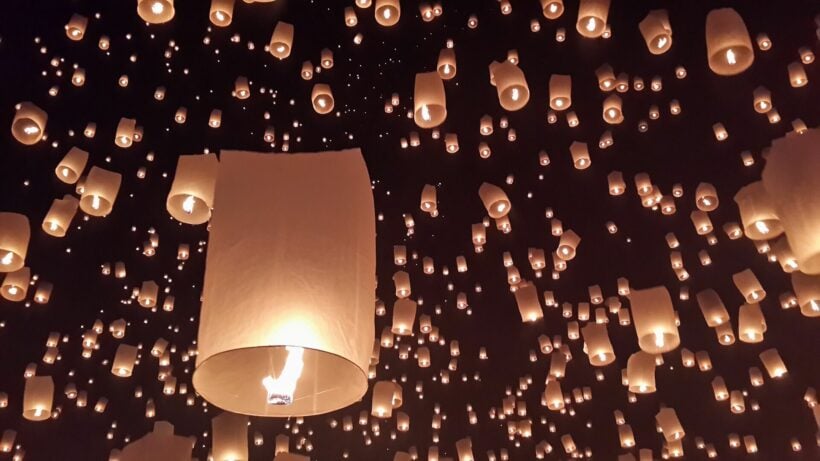
How to light and release a lantern during Yi Peng
Launching your very own lantern into the night sky is possibly the most exciting part of Yi Peng.
You can find many vendors selling lanterns on the street on the day of the festival, so you don’t really need to buy lanterns in advance. It’s best to buy larger lanterns because they’re much easier to launch. A big lantern usually costs around 50 to 100 baht. Also, be sure to choose a lantern that is made from environmentally friendly materials, such as rice paper and bamboo. Be careful when holding the lantern. Since the paper is very thin, it can tear easily.
Lighting and launching a lantern by yourself is quite tricky, so it’s best that you have a lantern release partner. If you’re travelling alone, it’s a great way to make new friends! Once you find a partner, one person should hold the paper and the other light the circular block at the base of the lantern. After you light it, be sure to hold it tightly as hot air will begin to fill the lantern, and it will start to pull upwards. When your lantern starts to lift and pulls your arms, you can gently release it into the night sky. Make sure to let the lantern float naturally without pushing it. Don’t forget to make a wish or hope for the future before you release it!
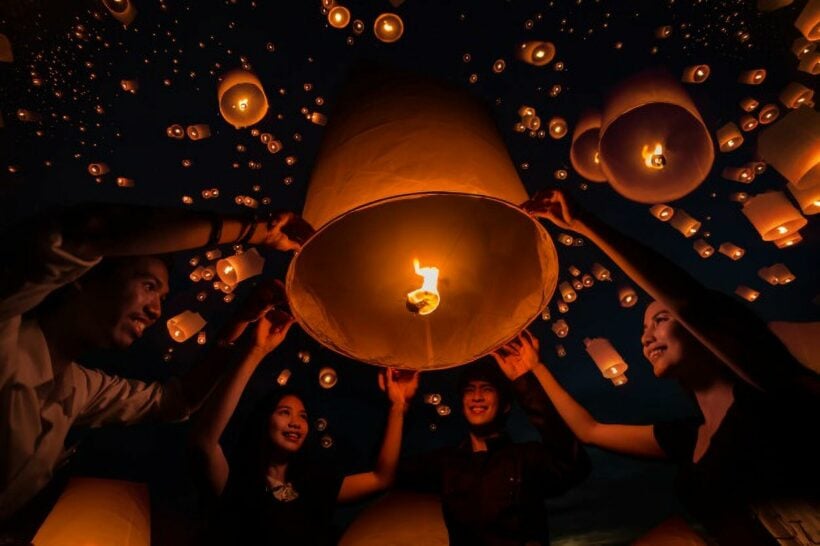
Other interesting things about Yi Peng festival
1. Yi Peng and Loy Krathong are two different festivals
Yi Peng and Loy Krathong are often confused with one another as they’re very similar and celebrated on the same day. However, the two festivals are actually different. Loy Krathong is celebrated all around Thailand. It involves floating baskets made of leaves, flowers, candles, and incense that are released into a body of water. One of the purposes of this festival is to pay respect to the water goddess and the Buddha.
Yi Peng, on the other hand, is a festival unique to Northern Thailand. Because Yi Peng and Loy Krathong occur on the same day, the two festivals are often celebrated together in Northern Thailand.
2. The lanterns can only be released at certain places at a specific time
Since the lanterns can interfere with aeroplane’s flight paths, they can only be launched between 7pm and 1am on festival days. You also shouldn’t release the lanterns anywhere you like, only in permitted lantern zones. Violating the rules can result in a fine and imprisonment.
3. Chiang Mai is at its busiest during Yi Peng
Yi Peng is possibly the busiest time of year in Chiang Mai. People from all around the world flock into the city to experience the magical festival. Due to this reason, hotel rooms are usually in short supply. Therefore, if you want to visit Chiang Mai for Yi Peng, it’s best to book your accommodation early!
4. The lanterns can be harmful to the environment
The lanterns released during Yi Peng are made of rice paper with a wood or bamboo frame and wire to hold the flammable coil or candle. Remember, what goes up must come down. So after festivities end, most of the lanterns end up in trees, the rivers, and on the ground, which can harm both the environment and surrounding communities. That’s why there are more governmental restrictions regarding the release of lanterns. If you’re not Buddhist, it might be best to observe the beautiful ceremony without participating in it.
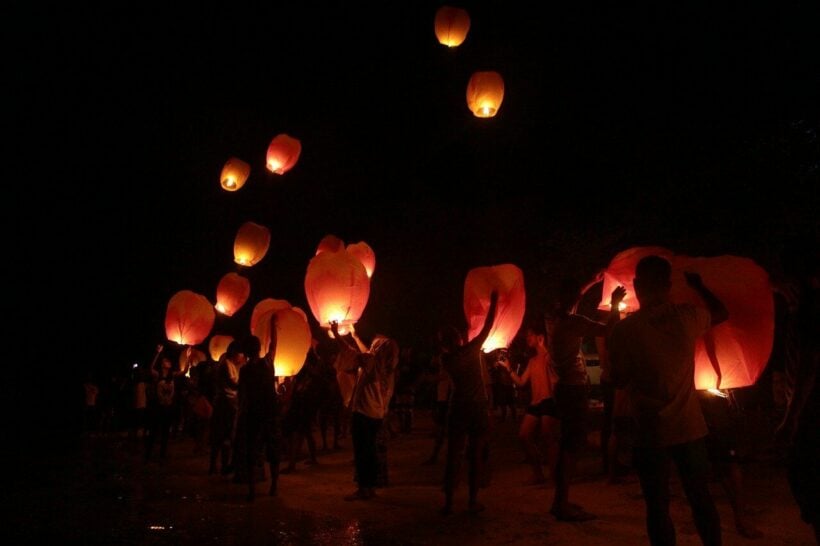
Bear in mind that Yi Peng is a religious festival. Therefore, be mindful not to obstruct people from launching their lanterns and dress appropriately if you plan to visit a temple. Whether you’re observing or taking part in the festival, it’s important to always be respectful.
Want to learn more about Thailand amazing festivals? Check out our article on Everything You Need to Know About Songkran.
Latest Thailand News
Follow The Thaiger on Google News:
